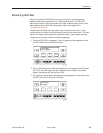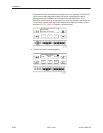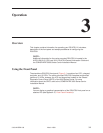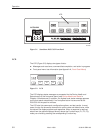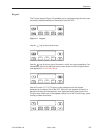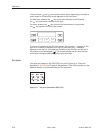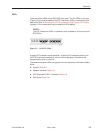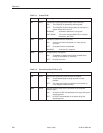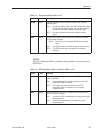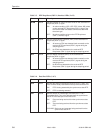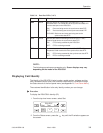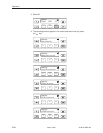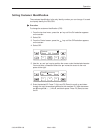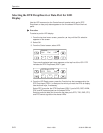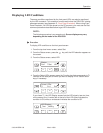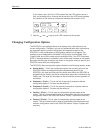
Operation
3-7
3160-A2-GB21-80
March 1999
Table 3-2. Network Interface LEDs (2 of 2)
Name MeaningColor
ALRM Yellow Indicates whether an alarm condition exists on the received
network signal.
ON:
An alarm condition (LOS, LOF, EER, Yellow, AIS) exists
on the received network signal. Use the Device Health
and Status command to determine the alarm type.
OFF:
No alarm condition exists on the network interface
signal.
EER Yellow Indicates the Excessive Error Rate (EER) has been exceeded
on the network interface.
NOTE: This LED is only valid when ESF framing is being
used.
ON:
The EER has been exceeded on the network interface.
OFF:
The EER has not been exceeded on the network
interface.
NOTE:
The DTE Drop/Insert (DSX-1) interface is only available on 2-port and 4-port
DSU/CSUs.
Table 3-3. DTE Drop/Insert (DSX-1) Interface LEDs (1 of 2)
Name Color Meaning
SIG Green Monitors the signal being received from the DTE Drop/Insert
(DSX-1) interface.
ON:
A recoverable signal is being received from the DTE
Drop/Insert (DSX-1) interface.
OFF:
The signal cannot be recovered from the DTE
Drop/Insert (DSX-1) interface (a Loss of Signal
condition exists).
OOF Yellow Monitors Out Of Frame (OOF) conditions on the received DTE
Drop/Insert (DSX-1) signal.
ON:
At least one OOF was detected on the signal during the
sampling period.
OFF:
No OOFs were detected on the signal during the
sampling period.



